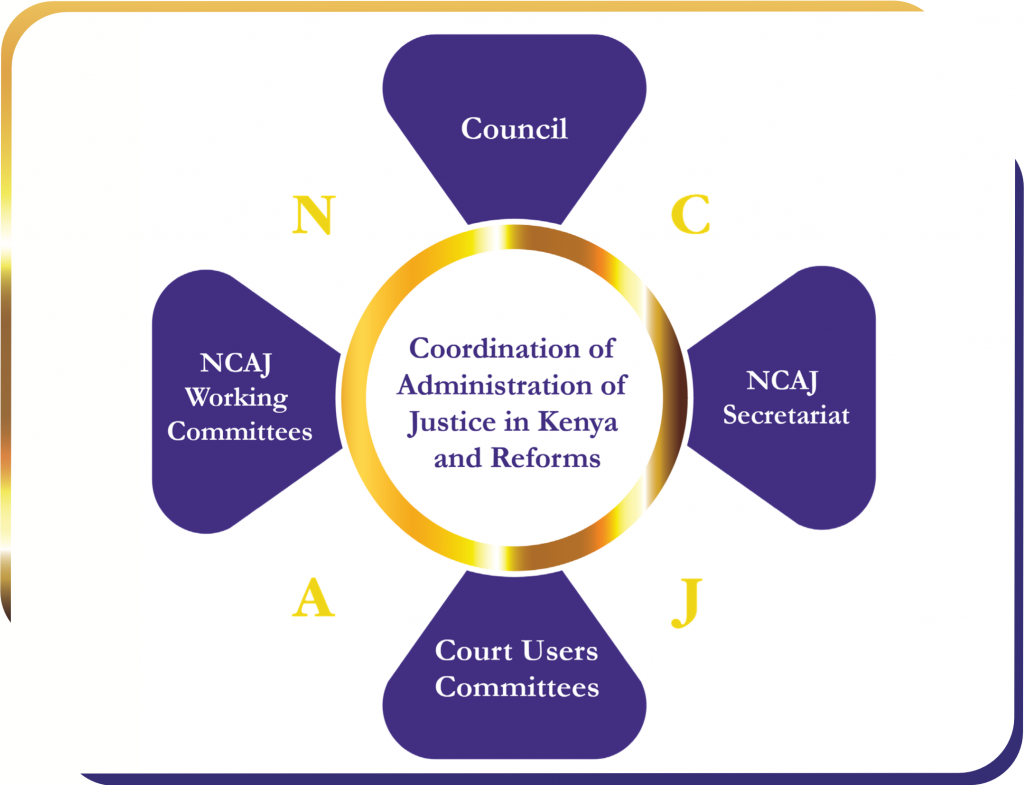About NCAJ
The National Council on the Administration of Justice (NCAJ) was established in 2011 under Section 34 of the Judicial Service Act (No. 1 of 2011) as an umbrella body that brings together justice sector actors to ensure an efficient, effective and consultative approach to the administration of justice
Our mandate is to ensure a coordinated, efficient, effective and consultative approach in the administration of justice and reform of the justice system.
Council Members
The National Council for the Administration of Justice draws its council members from various State and non-State actors.
State actors include members from the Judiciary, the Ministry of Justice, the State Law Office and others. Non-State actors include the National Commission on Human Rights and others
Strategic Focus Areas
Access to justice is a high-profile issue in Kenya. However, many citizens do not know their rights or understand how the criminal justice system works.
There is generally low awareness of government reforms that are improving coordination and transforming the administration of justice, including new policies and other measures.
Working Committees
The NCAJ, in the execution of its mandate, has processed numerous justice sector Bills and developed several policies including Bail and Bond Policy Guidelines, Handbook on Combating Illicit Trade, Sentencing Policy Guidelines.
Currently, through its seven committees, NCAJ is undertaking various far-reaching reform initiatives in the administration of justice.
Committees
The NCAJ Secretariat undertakes technical work concerning the administration of justice, coordination assignments and provides linkages between the Council, Working Committees and CUCs.
The Secretariat has eight Departments and one Unit. Details about the Departments and the Unit are expounded in Chapter Two.







